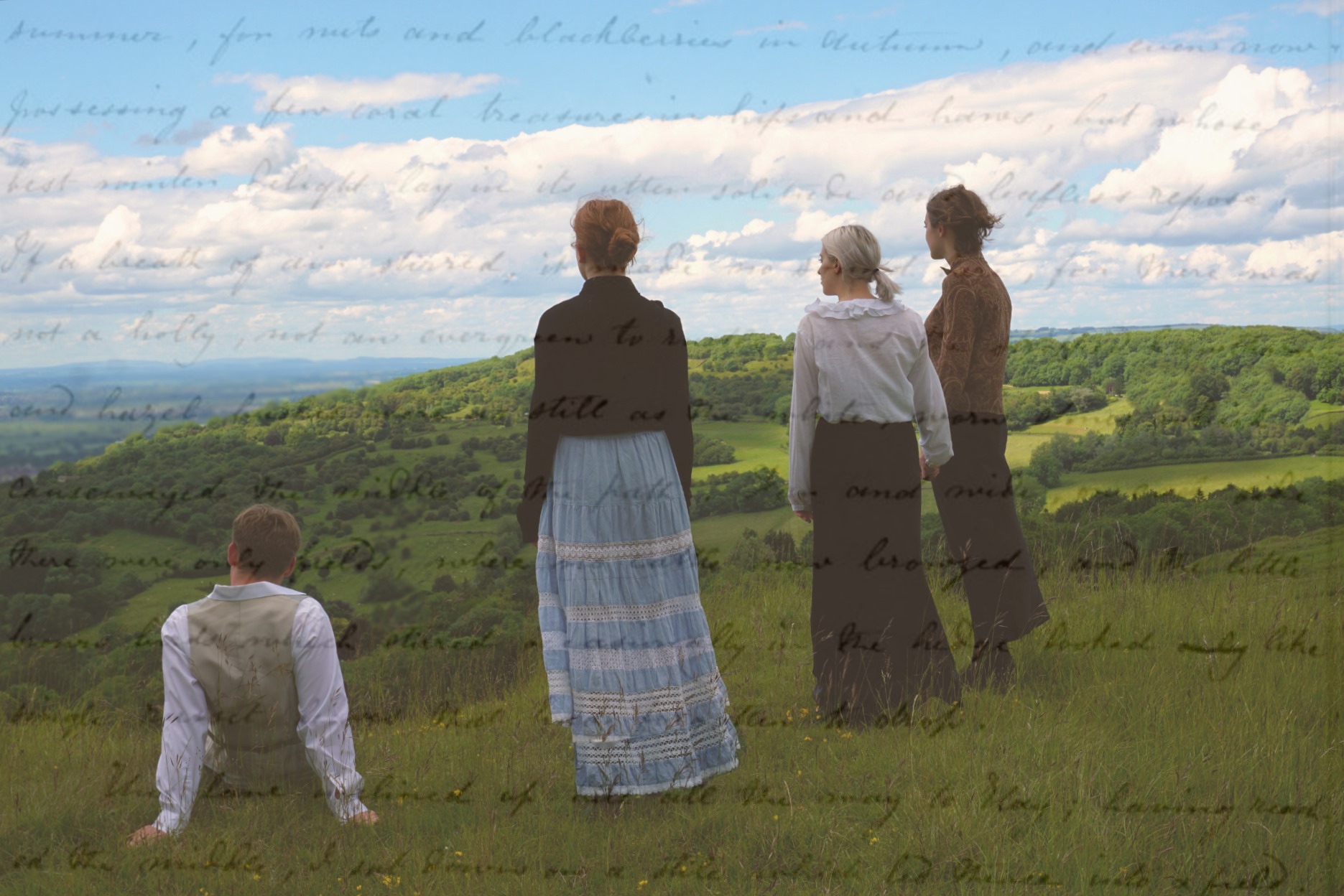The story of the Brontë sisters is a well-known one – the Yorkshire parsonage childhood, the male pseudonyms they had to adopt to court success, their tragic early deaths – but it’s one that bears retelling, especially when as succinctly and emotively done as it is here by the cast of the Eleventh Hour Theatre Company.
Written and directed by Rebecca Vine, More Myself Than I Am is a fairly straight, chronological journey through the siblings’ lives, with all the trappings of the period in terms of costume and set. What makes it stand out as a cut above is the strong characterisation, lively dialogue and dynamic performances from the cast of four.
Charlotte (Maddie Dunn) partially acts as narrator, which creates an opportunity to quote apposite lines from the sisters’ works. For the most part though the familial tensions are acted out in front of us – and tensions there are. Although we sense the mutual support and encouragement that guided them through the wild, imagined worlds of their childhood, in adulthood these are four strong, distinct characters, and that can be for good or for bad.
Charlotte, for instance, is confident and ambitious, the natural leader among them, though to Emily (Izzy Moulding) that feels ‘controlling’. Meanwhile, Emily’s cynicism and pragmatism make her easy to side with, the most accessible of the three – not perfect like Charlotte, nor idealistic like Anne (Maddy Chapman). She displays a kind nature too, but to her own detriment can be fatalistic and self-critical. Anne, the youngest, is gentle and overtrusting – traits that Branwell (Max Thomas) cruelly turns on their head when he describes her as a ‘timid, cowering little thing’. The eldest/middle/youngest daughter dynamic is strong and clear. And Branwell is… well…
Another notable aspect of this play is it doesn’t lean too heavily on the obvious feminist line, of three brilliant sisters held back by their gender and a wastrel brother indulged because of his. It is possible to read that interpretation into it, but it’s not spoon-fed to you. Instead, the conflicts feel organic to the family, so that it’s not the heavy-handed lesson in gender politics it could be: these are four siblings facing the challenges of their times, not proxies for the faultlines in 19th century society.
And that opens up different readings of the situation. While Charlotte details Branwell’s failings after his death, for instance, Emily defends her brother as ‘a weak man, not a bad one’, charitably explaining how in the bars of Haworth he was the ‘someone’ he always wanted to be. It’s nuance like this that draws the audience in and makes them analyse what they’re seeing. The only slight blip in the writing is the occasional neologism, like a character being implored to ‘own your mistakes’.
The acting is similarly strong. It’s subtle when it needs to be, but explosive at all the right moments. Branwell’s drunken decline necessitates some in-your-face confrontations, and one, with Moulding as Emily, is especially gripping – a whites-of-the-eyes slanging match where all of the energy in the room seems to be concentrated in the millimetres between their angry faces.
Ultimately, the sisters’ lives were as tragic as many of those in their books. These are lives that are ‘blighted’, as Charlotte says, and the spectre of illness is present from the opening passage of the piece. We’re reminded that there were two older sisters that never made it to adulthood, and references to the over-full churchyard sound ominous. But most effectively of all, the stately dances that signal scene changes turn from playful and childlike to slow dances of death; and as Charlotte sits once more at her desk to bid us farewell, the sad brevity of these exceptional lives can be felt in the air.


Comments